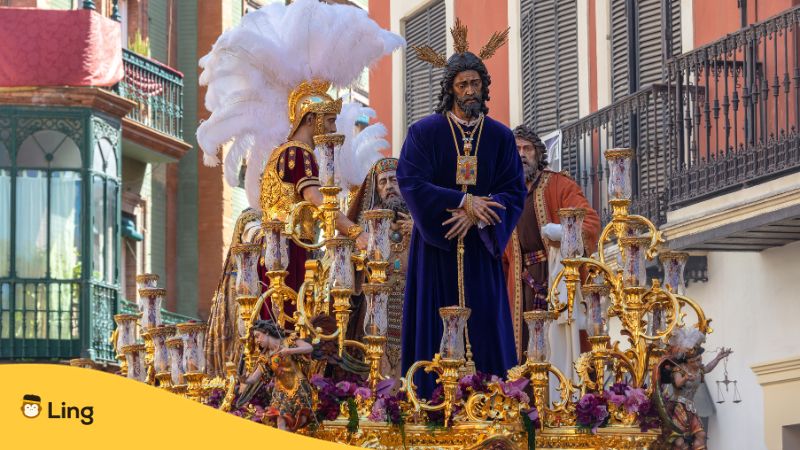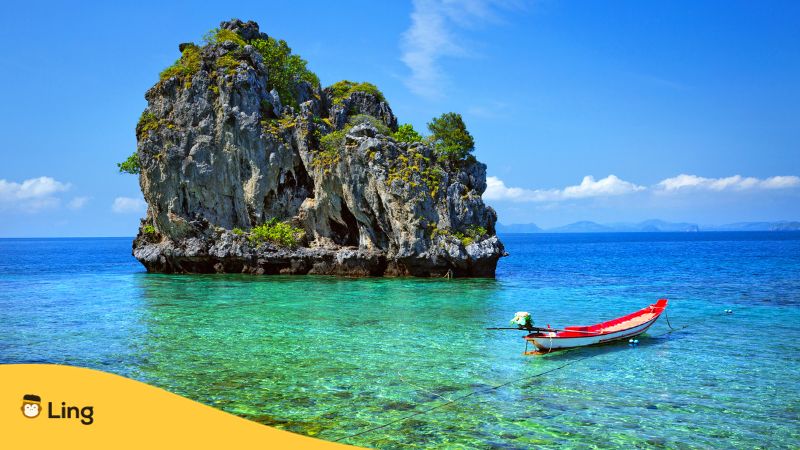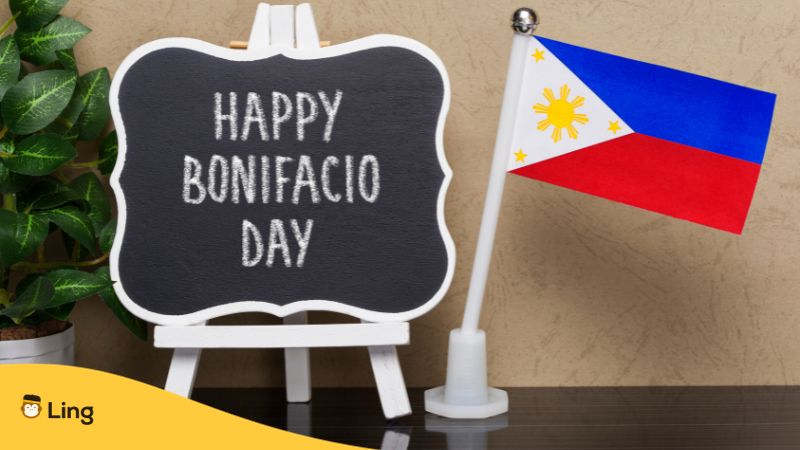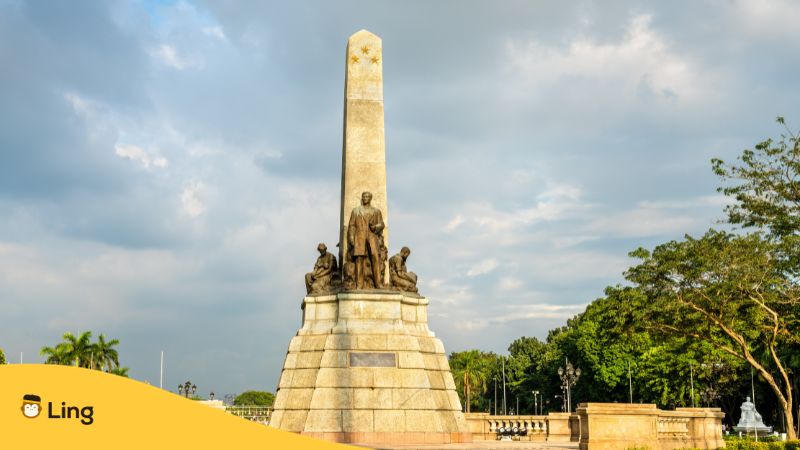Is it a holiday in Philippines? Well, I can’t blame you for asking about this! As a country that loves fiestas, it may seem like every day in the Philippines is practically a holiday! But we Filipinos take our actual regular holidays and special non-working days very seriously. From New Year’s celebrations to paying tribute to our national heroes, read on for your complete guide to the 2024 holidays PLUS Tagalog words related to each!
Table of Contents
Is It A Holiday Today In Philippines?

🥳 Ring In The New Year Right! – January 1st
Type: Regular non-working holiday
While the Christmas frenzy has died down from 9-day Simbang Gabi dawn masses, media noche feasts, and chaotic family reunions, January 1st still brings all the festivities of a special non-working holiday for welcoming the “Araw ng Bagong Taon.” That means days filled with gatherings over pancit noodles, lumpiang shanghai rolls, friendly house-to-house visits, loud horns, and hopeful optimism for the upcoming year!
| English | Tagalog |
|---|---|
| New Year | Bagong Taon |
| Celebration | Pagdiriwang |
| Fireworks | Paputok |
| Countdown | Bilangan |
| New Year’s Eve | Bisperas ng Bagong Taon |
| Resolution | Resolusyon |

🧧 Spread The Love In “February” – January 22
Type: Special non-working holiday
The Philippines will be ushering in the Year of the Dragon this January 22nd. This fixed date in the Chinese lunar calendar calls for thoroughly cleaning the house, displaying circular tikoy cakes, erupting fireworks, and parading with colorful dragon and lion dances for good fortune! Children also love receiving red envelopes or ampao money gifts.
| English | Tagalog |
|---|---|
| Valentine’s Day | Araw ng mgapPuso |
| Love | Pag-ibig |
| Flowers | Mga Bulaklak |
| Dragon | Dragon |
| Lanterns | Mga Parol |
| Prosperity | Kasaganaan |
✊️ Remembering EDSA Through People Power – February 25
Type: Special non-working holiday
What were your parents or titos and titas doing back in 1986 when Ninoy Aquino’s wife Cory dropped those iconic yellow confetti balloons from votes electing her as the Philippine president? Every “Pebrero bentecinco,” we commemorate the anniversary of this national historical milestone, which toppled a dictatorship and restored democracy without a single drop of bloodshed.
| English | Tagalog |
|---|---|
| Revolution | Himagsikan |
| Freedom | Kalayaan |
| Democracy | Demokrasya |
| Non-violence | Di-pagiging Marahas |
| Unity | Pagkakaisa |

🙏 Observe Holy Week Traditions – April 6 To April 9
Type: Regular non-working holiday
For most Filipino Christians, the week leading up to Easter pays respect to Jesus’ suffering via religious floats and passion plays. So Maundy Thursday and Good Friday on April 6-7 are regular paid holidays across the country, with malls closed and minimal work. Devout Catholics practice self-flagellation, pabasa poetry, sacred visitas iglesia, or even reenactment crucifixions! But the solemn ambiance makes the joyous Easter rebirth even more special.
| English | Tagalog |
|---|---|
| Holy Week | Mahal na Araw |
| Palm Sunday | Linggo ng Palaspas |
| Maundy Thursday | Huwebes Santo |
| Good Friday | Biyernes Santo |
| Easter Sunday | Linggo ng Pagkabuhay |
| Resurrection | Muling Pagkabuhay |

✨Celebrating Valor -April 9th
Type: Regular non-working holiday
Araw ng Kagitingan, or the annual Day of Valor holiday, honors all Allied Philippine and American soldiers who fought fearlessly against Japanese occupations during WWII. So most families commemorate history by heading to historic Corregidor or Bataan sites where officials reenact the historic flag raising over Mount Samat. Expect pride and pandesal picnics!
| English | Tagalog |
|---|---|
| Day of Valor | Araw ng Kagitingan |
| Bravery | Kagitingan |
| Heroism | Kabayanihan |
| Sacrifice | Sakripisyo |
| Freedom | Kalayaan |
| March | Martsa |

🏖️ Labor Day Is A Vitamin SEA Day – May 1st
Type: Regular non-working holiday
Labor Day reminds Filipino employees to enjoy well-deserved breaks! This means most workers prepare weeks in advance for a long weekend of packing up friends, family, food, and heading to Boracay or Palawan’s white sand beaches. Often, overseas Pinoys even book that May 1st balikbayan flight back home for some tropical sun, shell souvenirs, island hopping, and Vitamin Sea healing!
| English | Tagalog |
|---|---|
| Worker | Manggagawa |
| Rights | Karapatan |
| Employment | Empleyo |
| Sun | Araw |
| Beach | Dalampasigan |
| Vacation | Bakasyon |
| Heat | Init |

🤲🏽 Eid’l Fitr Celebrations – April 9th To 10th
Type: Regular non-working holiday
With over 6.4% of Filipinos identifying as Muslim, the feast of Eid’l Fitr is considered a nationwide regular holiday on April 10th. The date marks the end of a month of dawn-to-dusk Ramadan fasting. And devotees celebrate it with feasts including piles of pichi-pichi, kwek-kwek street food, and grilled halal meats that could feed an entire barangay! Indeed, such a meaningful way for cultures to bond.
| English | Tagalog |
|---|---|
| Celebration | Pagdiriwang |
| Prayer | Panalangin |
| Feast | Piging |
| Charity | Kawanggawa |
| Gratitude | Pasasalamat |

🛡️ Bonifacio Day – November 27th
Type: Regular non-working holiday
Every November 27th, Bonifacio Day honors his birth anniversary instead, commemorating him as a leading revolutionary icon through education efforts like school contests about his life. Major metro cities also hold lively cultural events, from street parades and musical productions to wreath-laying ceremonies at his monument on Caloocan’s Grace Park. All in tribute to Bonifacio’s relentless radical spirit that continues fueling nationalism today.
| English | Tagalog |
|---|---|
| Bonifacio Day | Araw ni Bonifacio |
| Hero | Bayani |
| Revolution | Himagsikan |
| Freedom | Kalayaan |
| Nationalism | Nasyonalismo |

🎄Christmas Eve Extravaganza – December 24th
Type: Regular non-working holiday
When the “-ber” months arrive in the Philippines after September, it signals joyful preparation for the most wonderful time of the year! Expect elaborate Simbang Gabi masses, parol star lantern displays, Jose Mari Chan music, and a flurry of fiesta gatherings with family, friends, food, and fun! All culminating in the grand Christmas Eve midnight feast on December 24th.
| English | Tagalog |
|---|---|
| Christmas | Pasko |
| Santa Claus | Santa Klaus |
| Gifts | Mga Regalo |
| Christmas Eve | Bisperas ng Pasko |
| Caroling | Pangangaroling |

⚔️ Rizal Day – December 30th
Type: Regular non-working holiday
Jose Rizal stands as one of the most influential revolutionary heroes and martyrs for Philippine independence. His leadership through scholarly writings against Spanish colonial injustice ultimately led to his arrest and execution by firing squad on December 30, 1896.
Now, every Rizal Day, people commemorate his death anniversary by visiting monuments like the Rizal Park memorial in Luneta. Government officials perform flag ceremonies here while respectfully remembering his patriotic works like Noli Me Tangere. Cultural groups also stage passionate theatrical and musical productions of Rizal’s final moments. All allow us to reflect on how national heroes like Jose Rizal continue inspiring the country towards a just society even today.
| English | Tagalog |
|---|---|
| José Rizal | José Rizal |
| National Hero | Pambansang Bayani |
| Novelist | Nobelista |
| Rich | Mayaman |
| Martyrdom | Pagkamartir |
Understanding Philippine Provincial And City Holidays
On top of nationwide regular holidays, the Philippines observes a number of local provincial and city non-working days as well. This is because provincial governments and city municipalities have the authority to declare between 2-10 additional public holidays depending on special events relevant to their region.
Some examples include celebrating Catholic patron saints and feast days of locally beloved figures. Major metros also commemorate their own foundation day. Meanwhile, provinces may declare special days for events like local product festivals that bring tourism.
While these local regular holidays may only affect community-level government and school operations, private companies also often follow suit and close shop for the day so employees can partake in celebrations.
When traveling to specific Philippine provinces and cities, always check their official government website and social media pages for announcements on upcoming local holidays. As festivals and patron saint days celebrated can vary across towns and regions.
Some examples of famous Philippine local holidays include:
- Cebu City’s Sinulog Festival
- Davao City’s Kadayawan Festival
- Bacolod City’s MassKara Festival
- Kalibo’s Ati-atihan Festival
So don’t be surprised if during your domestic adventures, you encounter a vibrant fiesta holiday unique to certain barangays and municipalities! It’s all part of what makes each province regionally diverse.

What’s Open Or Closed On Philippine Holidays?
As a traveler visiting the Philippines during some of its major national holidays, you may be wondering how it affects opening hours and availability of key tourist services. Here are insider details:
Airports & Public Transport
Airports operate normally to accommodate holiday travel. Public buses and trains like MRT/LRT run less frequently using a Sunday or weekend schedule. Keep cash for jeepney/taxi budget.
Government Services & Tourist Offices
All non-emergency government offices, including postal, immigration, and licensing centers, will be closed. Tourism assistance centers in malls follow holiday mall hours.
Malls & Commercial Shops
Big malls open longer hours, from 10 am to 8 pm on holidays, while convenience shops, cafes, and pharmacies may open regular hours. Market stalls are less likely to operate.
Banks & Money Changers
Most major bank branches will be closed on Philippine holidays – so arrange cash needs beforehand via airport exchanges or ATMs. However, money changers within malls and hotels generally remain open to service tourist needs.
Attractions & Recreation
Top museums, galleries, and monument parks generally stay open on holidays – but may operate shorter hours. Nature reserves and diving centers also accommodate holiday traveler crowds. Major resorts and casinos continue business as usual.

Do Filipinos Work On Holidays?
For the major nationwide observances, Filipinos get paid time off work on special non-working days. Basically, most government agencies, banks, schools, and private companies fully close down operations on marked regular holidays to let employees enjoy festivities with family.
By Philippine labor law, employers are mandated to provide paid holiday leave on these set national public holidays, especially if stated under collective bargaining agreements. Failing to grant payment for no-work holiday policies can lead to sanctions.
The daily or hourly pay rate typically remains the same as any normal working day. Some collective deals also offer “holiday premiums” where workers receive 125-200% of their daily pay rate for each national holiday worked instead of time off.
While labor codes declare these official days as non-working holidays, vital services like public transportation, airports/shipping, hospitals, certain hotels, and essential businesses may remain operating. Employees in these sectors often work on a holiday on a rotation/skeleton workforce basis and receive payment later for overtime (policies can vary by company).
In addition, provinces and cities may have between 2-10 more local regular holidays depending on their foundation date or Catholic patron saints. So, work disruption can happen more frequently in some areas. Always check announcements beforehand from local government units.
Are You Visiting The Philippines Soon?
As you can see, holidays in the Philippines go far beyond just Christmas and New Year’s revelries. With over 30+ national observances endowed with deep cultural meaning — not to mention various vibrant provincial festivals — it’s no wonder festivity remains ingrained in Filipino DNA.
From the faith and food behind holy week traditions to the patriotic remembrances of heroes who shaped the nation, each date on the Philippine holiday calendar commemorates sacred values of family, history, and hope. Keep this guide handy as you plan any 2024 travels or balikbayan trips back home. See ya here in Manila!


































































